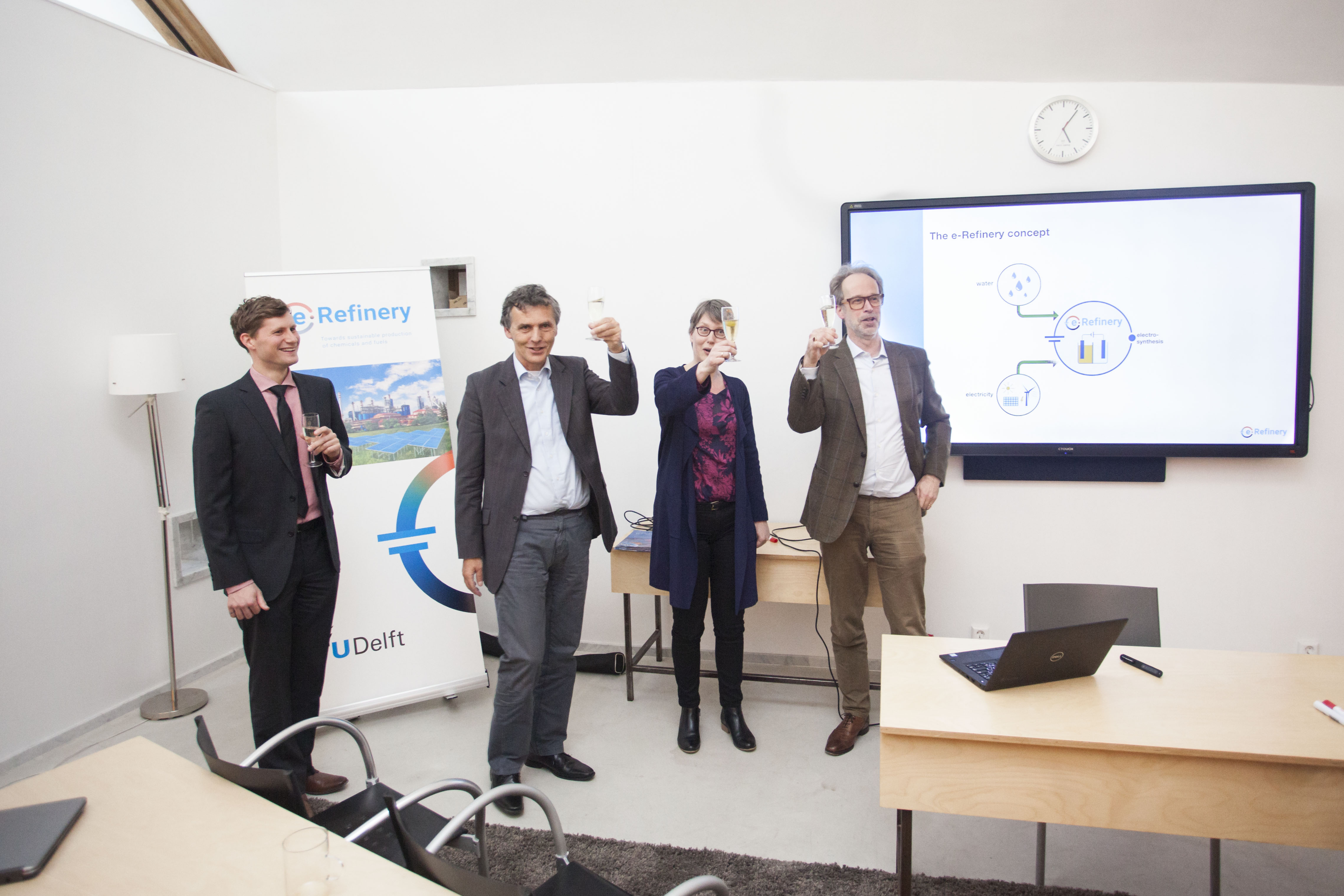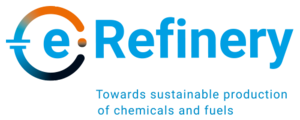TU Delft, Shell and the government invest 5 million euros towards sustainable breakthrough in the chemical industry
TU Delft, Shell and various Top Consortia for Knowledge and Innovation (TKIs) are investing 5 million euros in the development of electro-conversion technology to make the petrochemical industry more sustainable.
The project involves working on a breakthrough technology to convert CO2 and water into hydrocarbons by means of sustainable electricity. This was announced by the Delft e-Refinery consortium today.

By investing in the project entitled ‘Towards large-scale electro-conversion systems (TOeLS)’, Shell and the Top consortia for Knowledge and innovation support the TU Delft e-Refinery to achieve its objectives. This programme, in which TPM also participates, is working on a breakthrough technology that will directly convert CO2 and water into hydrocarbons, such as ethylene. These hydrocarbons can subsequently be used as renewable raw materials, fuels and as a storage medium for sustainable electric energy.
Hans Geerlings, research scientist at the Shell Technology Centre
‘We cannot embark on the particularly challenging path of sustainability without the support of science and the government. This investment will intensify our research into the development and scale-up of chemical processes that result in non-fossil fuels and base chemicals. We expect our e-Refinery approach to accelerate the process of sustainability.’
 e-Refinery
e-Refinery
The concept climate agreement states that CO2 emissions have to be 49% lower in 2030 and 95% lower in 2050 than they were in 1990. Industry, which is responsible for 14 million tonnes of emissions, will have to shoulder a large share of this reduction. The chemical industry as part of the industry has several options for becoming more sustainable, for example by increasing energy efficiency and using biomass as a raw material.
As an alternative, e-Refinery is developing an electrolysis technique to produce chemical building blocks, straight from CO2 and water. As wind and solar energy will be widely available in the future and will need to be stored, this technology will open up a range of opportunities. What is unique about e-Refinery is that the project encompasses the entire development process: from a basic design to a complete 100 kW system in five years’ time. Moreover, the production of ethylene can be expanded to other building blocks at a later stage, such as methane, methanol, carbon monoxide and ammonia.
Paulien Herder, programme manager at e-Refinery
‘The challenges of scaling up electrochemistry at the industrial level lie in understanding the connection between electrochemical reactions, materials design and the chemical, physical and engineering processes. e-Refinery provides this connection. In the TOeLS project, we are working together with Shell and the government to scale up electro-conversion. This is accelerating the process of sustainability and will ultimately enable us to scale up electro-conversion systems to the Gigawatt level.’
More information
www.tudelft.nl/e-refinery
Executive Board e-Refinery
Paulien Herder, P.m.herder@tudelft.nl / +31 15 27 82 823
Bernard Dam, B.dam@tudelft.nl / +31 15 27 84 342
Hans Geerlings, research scientist, Shell Technology Centre, j.j.c.geerlings@tudelft.nl / tel:+31 15 27 81452
Fien Bosman, Science communication advisor, f.j.bosman@tudelft.nl / 06 24 95 37 33.
Shell Media Relations / media-nl@shell.com / +31 70 377 8250
